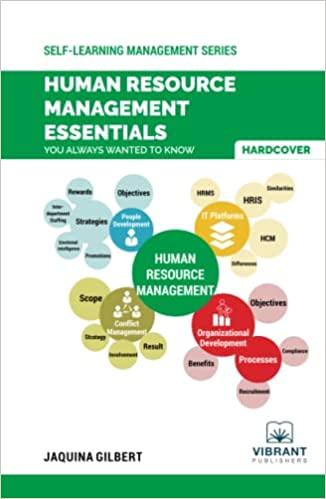Answered step by step
Verified Expert Solution
Question
1 Approved Answer
Rozalind Stamos, Director of the Intake of the Lincoln County Welfare Department prepared to confront the group leaders of her section - Alan Short and
Rozalind Stamos, Director of the Intake of the Lincoln County Welfare Department prepared to confront the group leaders of her section Alan Short and Susan Evans. She had about reached the end of her rope over the conflict between the two groups Alan and Susan each supervised six intake workers involved in a pilot project to provide direct service to applications for welfare, as well as reduce the payout to recipients. The state welfare department had approved a one year trial of "Roz's brainchild". She had handpicked the twelve nost productive enthusiastic, and personable caseworkers, and the two best group leaders, for the experiment Caseworkers were to work with each applicant to determine the type and duration of assistance necessary for the client to become selfsupporting to help secure the indicated services training child support, housing etc. to provide personal support and to negotiate a pre determined termination date. As an experienced social worker was confident the program would help teach the truly needy necessary survival skills provide temporary financial help and eventually reduce the amount of aid actually paid to welfare recipients
Roz thought she had done everything by the book. Alan and Susan helped select their caseworkers. Everyone pitched in during the move to the new facilities, laughing and joking with each other as they determined the arrangement of desks, dividers, telephones, etc. The caseworkers, clerks, and the receptionists brought in champagne and snacks in celebration of the new venture. It all seemed like one big happy family then. Now, six weeks later, caseworkers from one group are not speaking to those of the other Alan and Susan no longer lunch together, and Roz cannot remember the last time anyone laughed Simon, the receptionist, has just left Roz's office. There are people waiting in the Intake lobby, and not one caseworker will answer his calls. He reported that three worlders from each group were out of the office on home visits, but the other six refused to take new cases. The workers in Alan's group told him to assign all new cases to Susan's group until the caseloads were more evenand Susan's people told her they would not see anyone until Alan's people did. He did not know what to do and was almost shaking from frustration Roz invited Alan and Susan into her office, closed the door and demanded, What is going on out there? I feel like Im running a kindergarten What is wrong with these people
Alan responded, My people are justifiably refusing to carry the whole load of the department any longer. They break their backs working with intake for an hour convincing her to get into a training programsetting up an appointment with Legal Aid to file child supportcalling a friend in Food Stamps getting a rent payment from the Township; and finally securing a pre dated withdrawal from the client. When they get back to their desks, they find notes indicating that the next two intakes are theirs They look over and see three people from Susan's unit sitting there with clean desks and smug smiles on their faces. It is not fair to my people to do what they do and Susan's just glide by Whoa, wait a minute" Susan said, holding up her hand"Why should my people do double work because they are more efficient than yours? Intakes are assigned alternatively but equally If Marie can complete hers in minutes why should she take two more intakes just because it takes Sydney an hour to do one? That would mean that Marie would be seeing three times as many people. That is what is not fair.
At this point, Roz interceded and asked, How is it that there is such a difference between the two groups in the amount of time spent on an intake? We have a checklist for all possible services. Alan, why do your people take so long?" "Possibly because they are doing a good job" Alan retorted. They spend time with each person, they listenthey care. They don't just go through the checklist they look for ways to really help people. When they make home visits, they often end up taking children to the clinic, or the whole family to the grocery store. They are acting in the real spirit of this program not just going through the motions. Look at the stats you will find that at least of the time my people get voluntary withdrawals. Susan's average is less than That's the difference!" Susan replied, "there are some cases where voluntary withdrawal is not appropriate Some people really need long term help. Others are never going to agree to withdraw, so it is just a waste of time to convince them My workers know that. Maybe what we need is for them to teach your group how to judge people more accurately
Save me from the world savers
assuming the problem is that the one year trial is in jeopardy of failing, use Four complete theories to explain why?
Step by Step Solution
There are 3 Steps involved in it
Step: 1

Get Instant Access to Expert-Tailored Solutions
See step-by-step solutions with expert insights and AI powered tools for academic success
Step: 2

Step: 3

Ace Your Homework with AI
Get the answers you need in no time with our AI-driven, step-by-step assistance
Get Started


